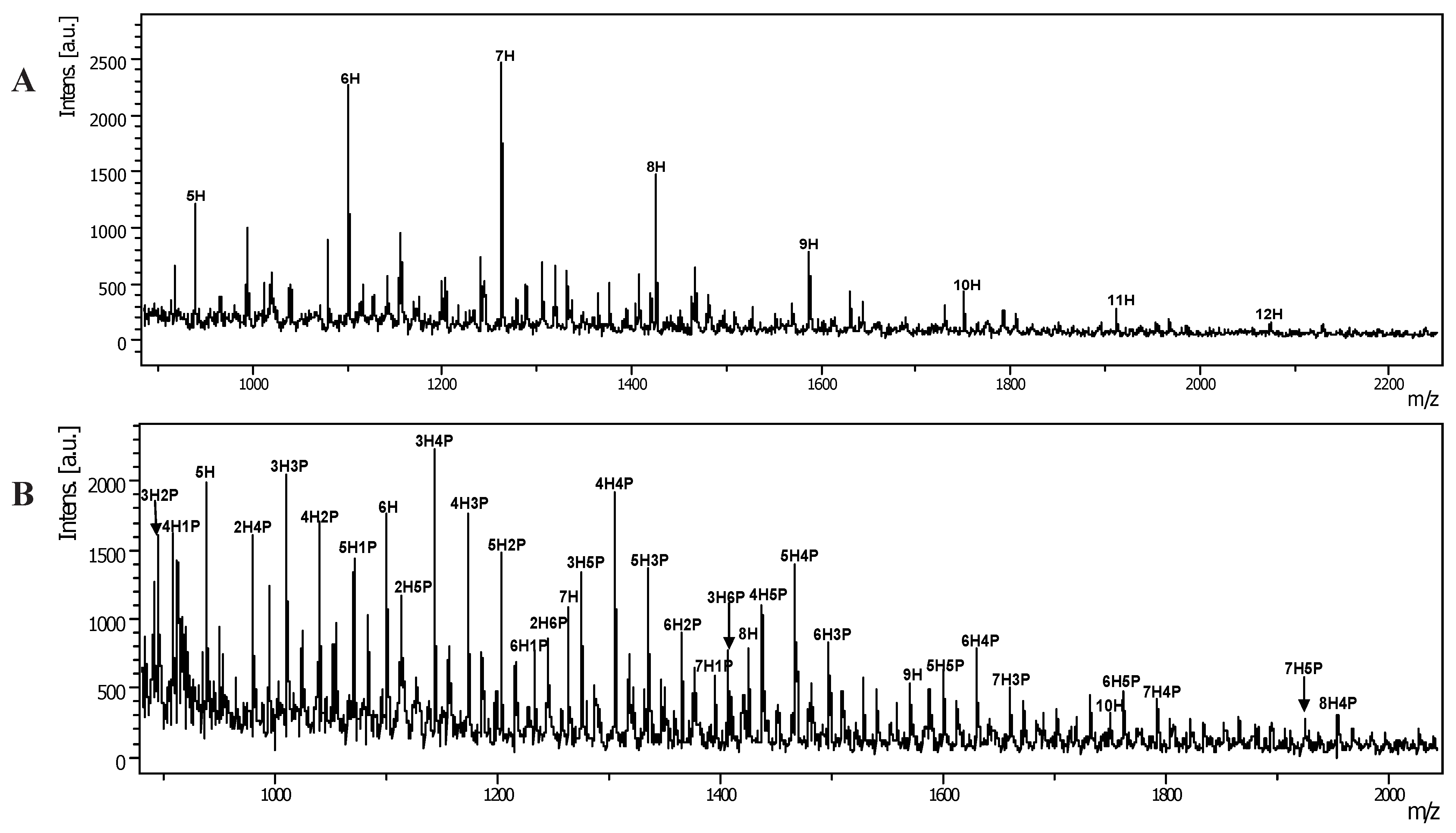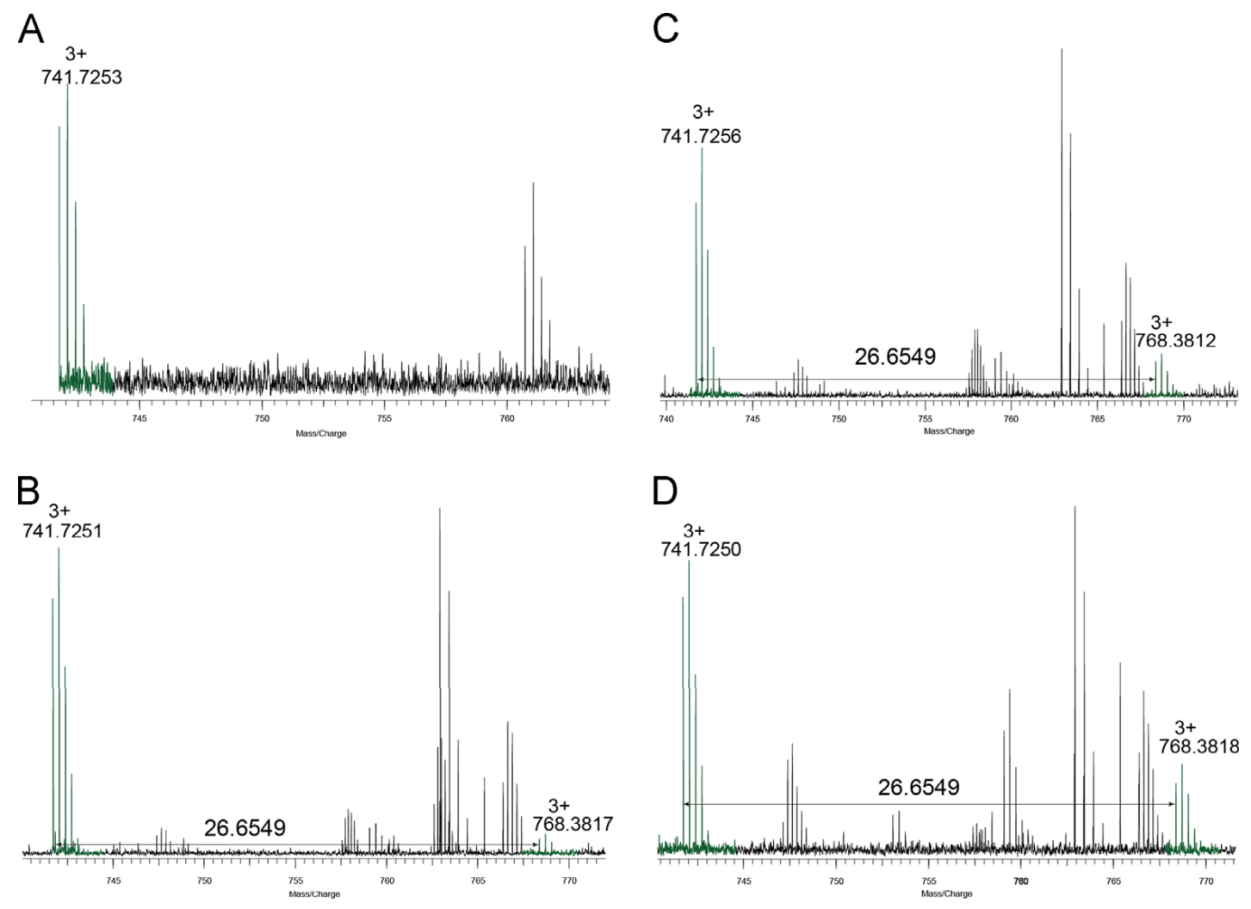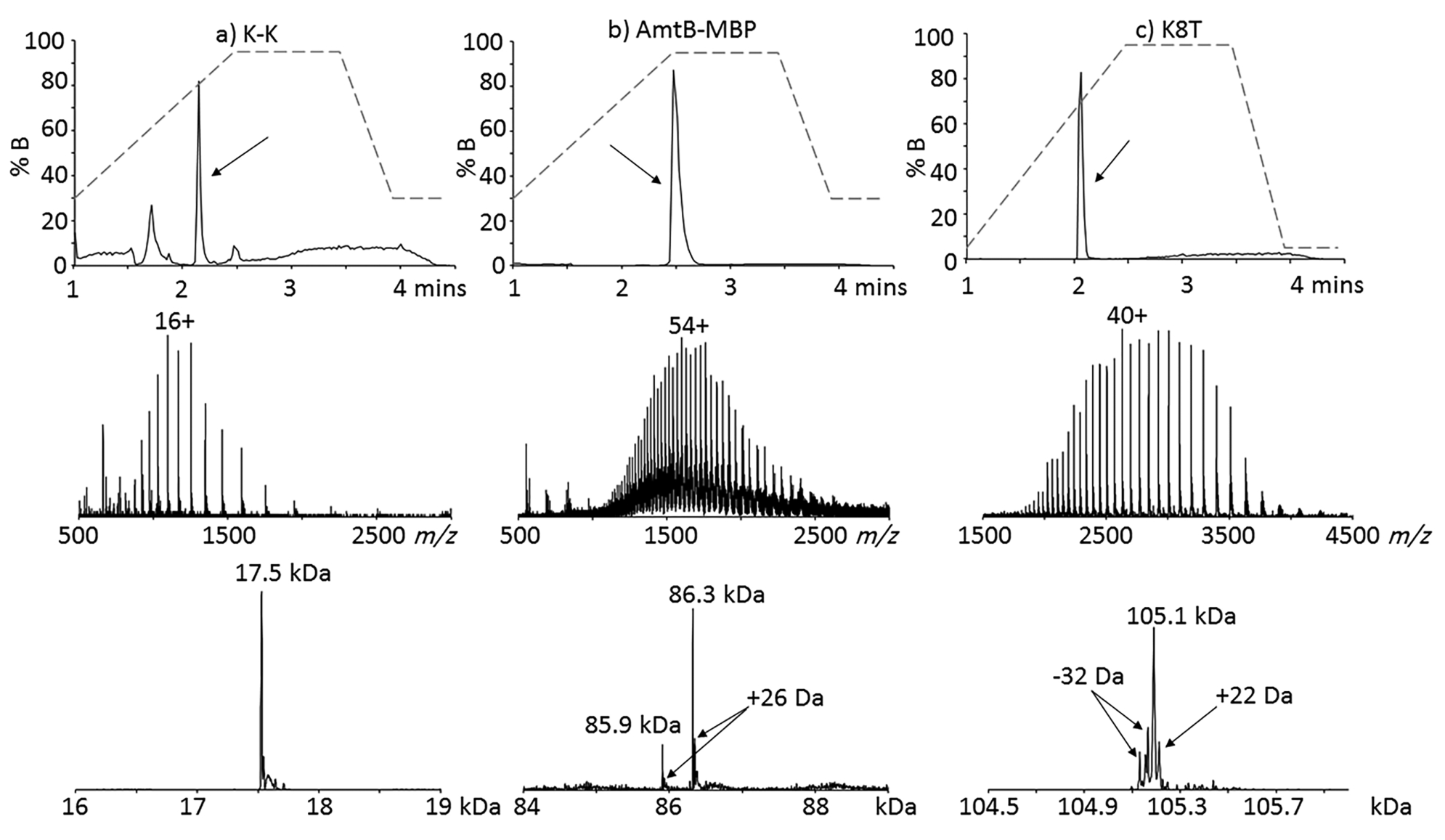Mass Spectrometry Molecular Weight Analysis Service
- Proteins and peptides
- Polymers and synthetic macromolecules
- Metabolites and small molecules
- Complex biomolecular complexes
- Environmental and organic compounds
MtoZ Biolabs offers professional mass spectrometry molecular weight analysis service, providing customers with precise molecular weight determination for proteins, peptides, synthetic molecules, and other biomolecules. Using high-resolution mass spectrometry, we rapidly and accurately deliver molecular weight data, supporting product identification, quality control, and structural analysis.
Technical Principles
Our mass spectrometry molecular weight analysis utilizes advanced technology to ionize and separate molecules based on their mass-to-charge ratio (m/z). Sample molecules are ionized, and the resulting ions are separated in electric or magnetic fields based on their m/z values. The detection of these ions enables us to acquire high-resolution, high-sensitivity molecular weight data, ensuring accuracy and precision.
Services at MtoZ Biolabs
MtoZ Biolabs employs a variety of advanced mass spectrometry instruments, including Orbitrap, MALDI-TOF, FTICR MS, and LC-MS/MS systems, to offer accurate molecular weight determination for diverse sample types. Our flexible platform allows us to select the most suitable method based on sample characteristics and customer needs, ensuring both precision and reproducibility.
Beyond molecular weight analysis, we provide in-depth insights into structural features such as post-translational modifications (e.g., glycosylation, phosphorylation), degradation, and aggregation. This data is invaluable for applications in research, drug development, clinical trials, and biopharmaceutical production.
Analysis Workflow
1. Sample Preparation
Depending on the sample type (e.g., proteins, peptides, small molecules), appropriate preparation steps are taken, including dissolution, concentration, and enzymatic digestion.
2. Mass Spectrometry Analysis
Using high-resolution mass spectrometers (e.g., MALDI-TOF, Orbitrap, LC-MS/MS), we obtain detailed molecular weight data for each sample.
3. Data Analysis
Specialized software interprets mass spectrometry data, identifying key molecular components, post-translational modifications, degradation, or aggregation phenomena.
4. Report Generation
A comprehensive report is provided, including methods, results, charts, and expert analysis, enabling customers to fully understand the molecular weight characteristics of their samples.
Why Choose MtoZ Biolabs?
1. Advance Analysis Platform: MtoZ Biolabs established an advanced mass spectrometry platform, guaranteeing reliable, fast, and highly accurate analysis service.
2. Wide Molecular Applicability: Our services cover a range of molecular types, including proteins, peptides, small molecules, and other sample categories, addressing the diverse needs of various research fields.
3. Comprehensive Analytical Capacity: Beyond precise molecular weight determination, we offer detailed analysis of post-translational modifications, aggregation, and degradation patterns, delivering a multi-dimensional view of molecular characteristics.
4. High-Data-Quality: Deep data coverage with strict data quality control. AI-powered bioinformatics platform integrate all molecular weight analysis data providing clients with a comprehensive data report.
5. One-Time-Charge: Our pricing is transparent, no hidden fees or additional costs.
Sample Submission Suggestions
We provide mass spectrometry molecular weight analysis service for a range of molecular types, including but not limited to:
When submitting samples, ensure that they are preserved in suitable buffers or solvents to prevent degradation or contamination. Simply send the samples to MtoZ Biolabs, where we will handle the subsequent purification, enrichment, data analysis, and other processes, delivering high-precision, reliable data support and an exceptional one-stop service experience.
Applications
Proteomics: Accurate molecular weight determination of proteins and peptides to support structural and functional analysis.
Polymer Research: High-precision molecular weight analysis to assist with material characterization and new material development.
Metabolomics: Identification of unknown metabolites and their molecular weights, revealing metabolic pathways, and supporting analysis of complex biological samples.
Drug Development and Quality Control: Verification of drug molecular weight and purity to ensure quality control and safety during the research and development phase.
Environmental and Geochemical Studies: Analysis of organic compounds in environmental samples, providing data support for pollution monitoring and geochemical research.
Case Study
1. MALDI-TOF MS analysis of the molecular weights of polysaccharides and their derivatives

Huang, W. T. et al. Molecules. 2012.
2. FTICR MS analysis of molecular weights of phosphorylated ovalbumin peptides at different time points after dry heat treatment (day 1, day 2, and day 5)

Wang, H. et al. Food Chem. 2016.
3. LC-MS determination of molecular weights of membrane and hydrophobic proteins

Lippens, J. et al. Anal. Chem. 2018.
FAQ
Q1: How do you ensure the accurate molecular weight determination for each component in a sample containing multiple molecules?
To ensure accurate molecular weight determination of each component in complex samples, MtoZ Biolabs utilizes advanced liquid chromatography-mass spectrometry (LC-MS/MS) techniques, capable of precisely separating and analyzing individual molecules. We employ multiple separation methods such as reverse-phase chromatography (RP-LC), ion-exchange chromatography (IEC), and affinity chromatography (AC), optimizing these techniques based on the sample's specific characteristics to ensure the best separation efficiency. For mixed protein and small molecule samples, these methods enable effective separation, quantification, and precise molecular weight determination, ensuring high-precision data for research purposes.
What Could be Included in the Report?
1. Comprehensive Experimental details
2. Materials, Instruments, and Methods
3. Total Ion Chromatogram & Quality Control Assessment
4. Data Analysis, Preprocessing, and Estimation
5. Bioinformatics Analysis
6. Raw Data Files
MtoZ Biolabs, an integrated chromatography and mass spectrometry (MS) services provider.
Related Services
MALDI Mass Specrometry Analysis Service
How to order?







